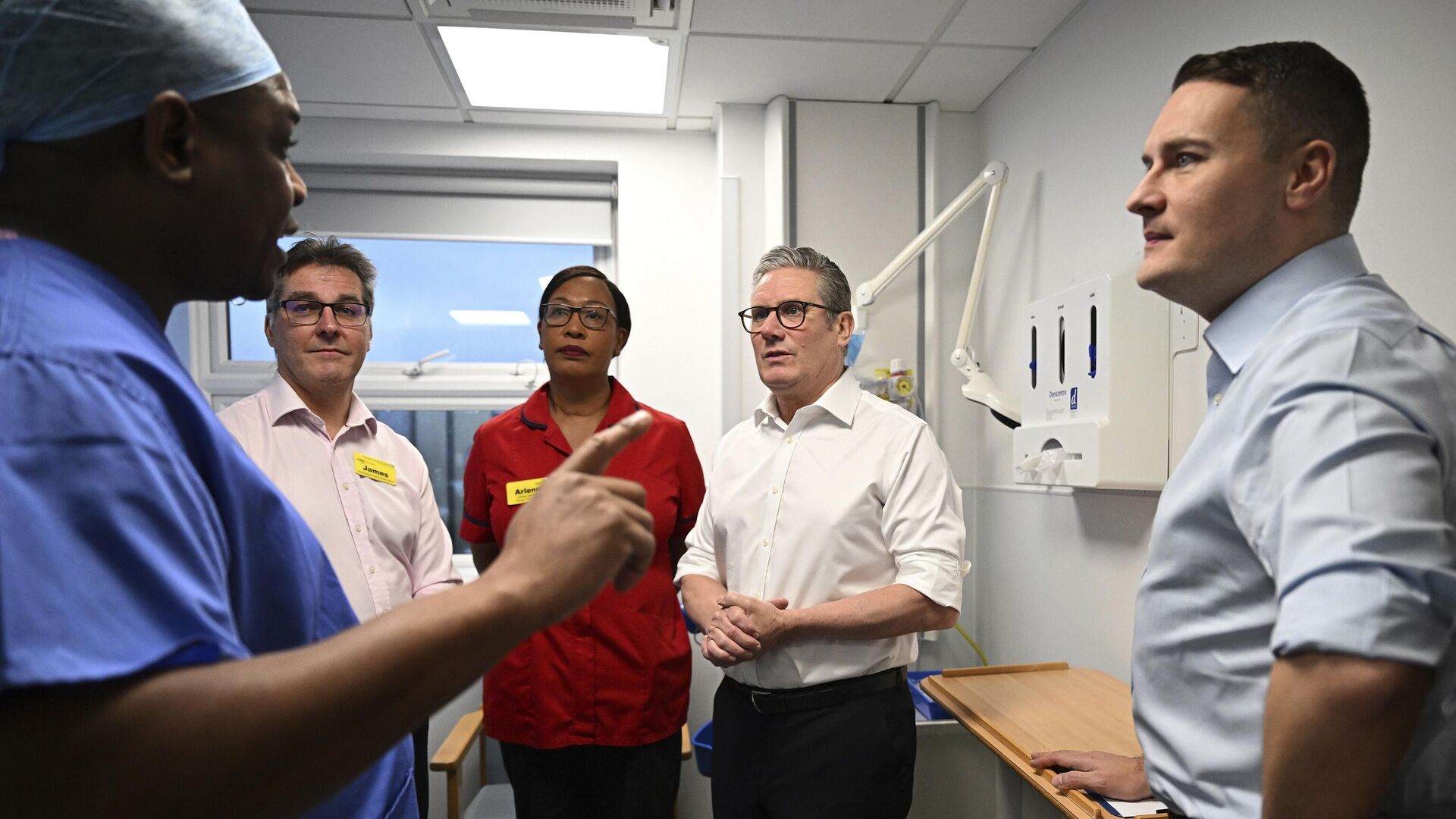https://en.sputniknews.africa/20250107/uk-simultaneously-reduces-health-aid--recruits-nurses-from-vulnerable-nations-research-says-1070074747.html
UK Simultaneously Reduces Health Aid & Recruits Nurses From Vulnerable Nations, Research Says
UK Simultaneously Reduces Health Aid & Recruits Nurses From Vulnerable Nations, Research Says
Sputnik Africa
The WHO's Global Code on International Recruitment, introduced in 2010, discourages countries from over-relying on migrant health workers, especially from... 07.01.2025, Sputnik Africa
2025-01-07T13:55+0100
2025-01-07T13:55+0100
2025-01-09T14:46+0100
united kingdom (uk)
boris johnson
sierra leone
ghana
health
healthcare
world health organization (who)
transportation
https://cdn1.img.sputniknews.africa/img/07e9/01/07/1070074080_0:0:3072:1728_1920x0_80_0_0_4e587380462e08dcbefaa8685192d7db.jpg
The Royal College of Nursing (RCN) criticized the UK for simultaneously cutting health aid to vulnerable countries and actively recruiting nurses from those same nations.Between 2020 and 2023, UK health aid to "red list" countries—those facing critical healthcare workforce shortages—plummeted by 63%, according to the RCN. Funding specifically for projects designed to strengthen healthcare workforces in these countries fell even more sharply, by 83%. At the same time, the number of nurses from these same nations registered to work in the UK nearly tripled, rising from 11,386 in 2020 to 32,543 in 2024.These cuts stem from the government's decision under UK former Prime Minister Boris Johnson to reduce the overall foreign aid budget by £4 billion, from 0.7% to 0.5% of gross national income. The impact of these cuts has been severe; for example, a 2021 funding halt left ambulances in Sierra Leone without fuel, directly hindering the transport of emergency patients.The World Health Organization's "red list" includes 55 countries (including Ghana, Nigeria, and others) that face critical shortages of healthcare workers. International guidelines discourage active recruitment from these countries.
https://en.sputniknews.africa/20250105/tanzanian-health-ministry-reveals-leading-causes-of-death-among-children-under-five-in-2022-vs-2023-1070042375.html
united kingdom (uk)
sierra leone
ghana
Sputnik Africa
feedback@sputniknews.com
+74956456601
MIA „Rossiya Segodnya“
2025
News
en_EN
Sputnik Africa
feedback@sputniknews.com
+74956456601
MIA „Rossiya Segodnya“
Sputnik Africa
feedback@sputniknews.com
+74956456601
MIA „Rossiya Segodnya“
united kingdom (uk), boris johnson, sierra leone, ghana, health, healthcare, world health organization (who), transportation
united kingdom (uk), boris johnson, sierra leone, ghana, health, healthcare, world health organization (who), transportation
UK Simultaneously Reduces Health Aid & Recruits Nurses From Vulnerable Nations, Research Says
13:55 07.01.2025 (Updated: 14:46 09.01.2025) Ekaterina Shilova
Writer / Editor
The WHO's Global Code on International Recruitment, introduced in 2010, discourages countries from over-relying on migrant health workers, especially from nations with critical shortages.
The Royal College of Nursing (RCN) criticized the
UK for simultaneously cutting health aid to vulnerable countries and actively recruiting nurses from those same nations.
Between 2020 and 2023, UK health aid to "red list" countries—those facing critical healthcare workforce shortages—plummeted by 63%, according to the RCN. Funding specifically for projects designed to strengthen
healthcare workforces in these countries fell even more sharply, by 83%. At the same time, the number of nurses from these same nations registered to work in the UK nearly tripled, rising from 11,386 in 2020 to 32,543 in 2024.
These cuts stem from the government's decision under UK former Prime Minister Boris Johnson to reduce the overall foreign aid budget by £4 billion, from 0.7% to 0.5% of gross national income. The impact of these cuts has been severe; for example, a 2021 funding halt left ambulances in
Sierra Leone without fuel, directly hindering the transport of emergency patients.
The World Health Organization's "red list" includes 55 countries (including Ghana, Nigeria, and others) that face critical shortages of healthcare workers. International guidelines discourage active recruitment from these countries.


